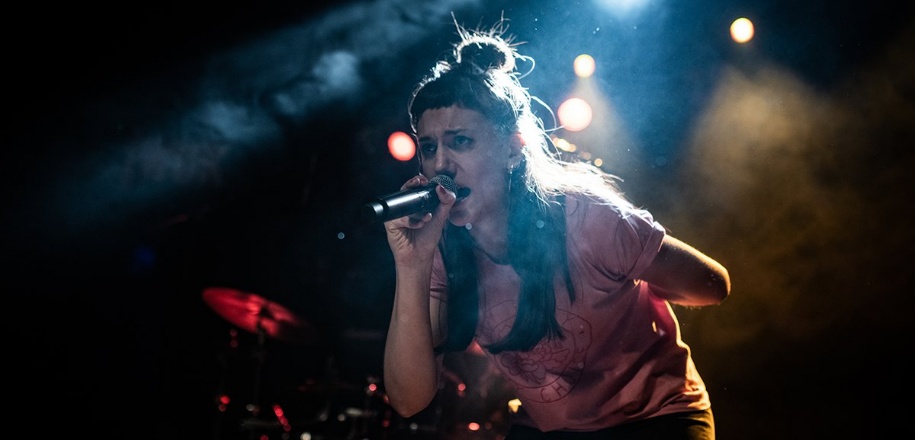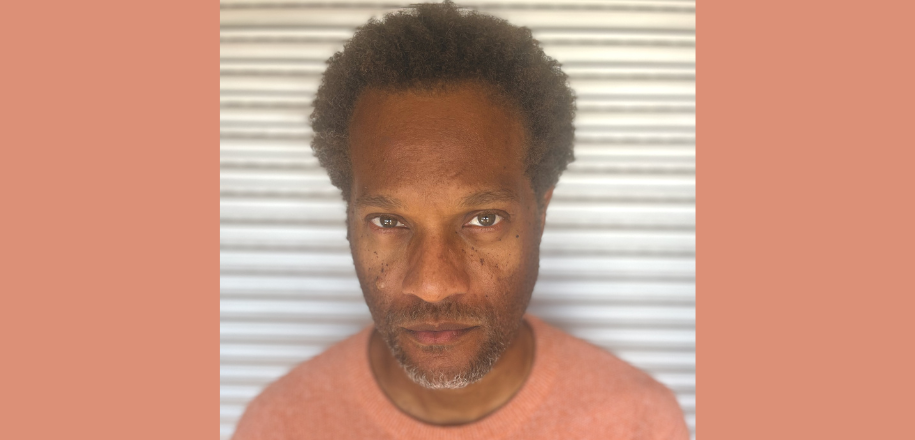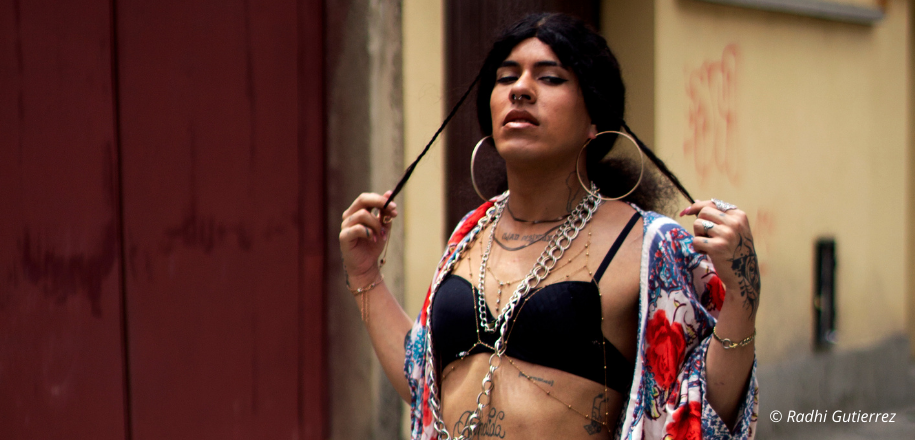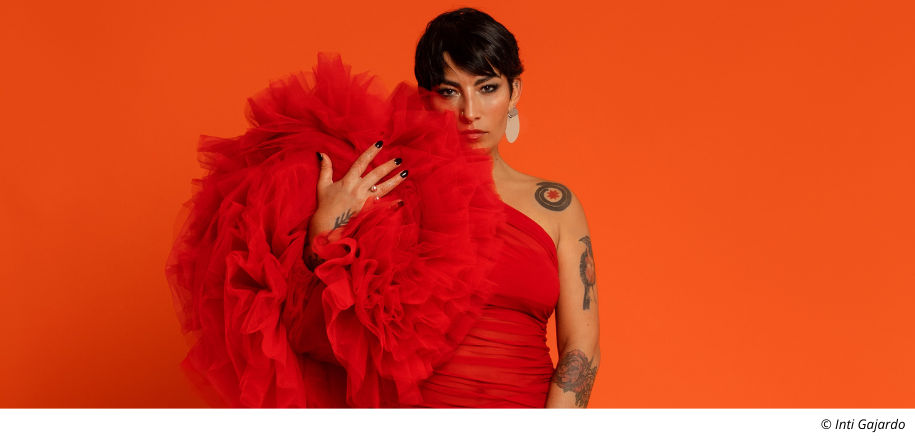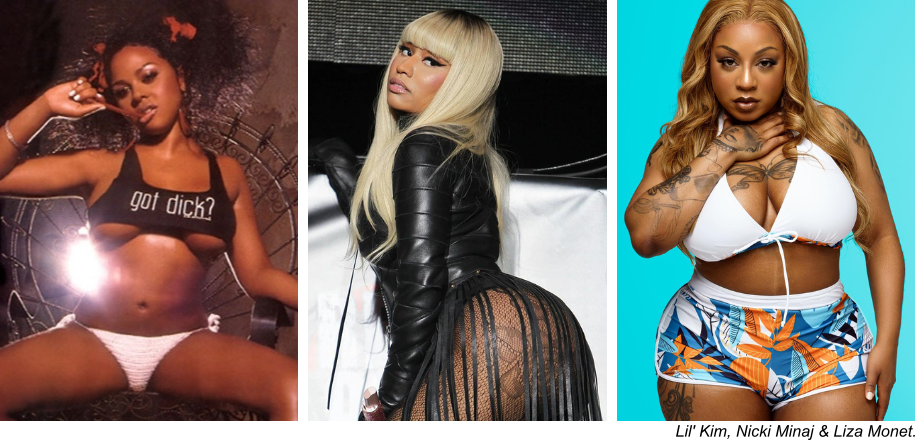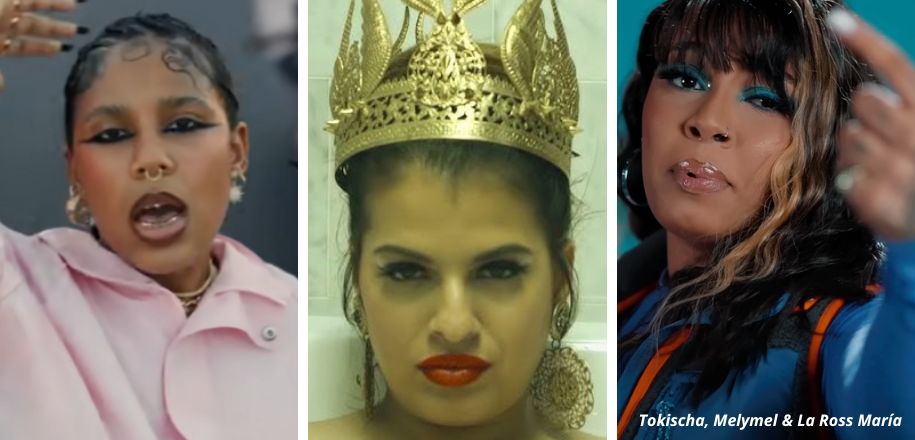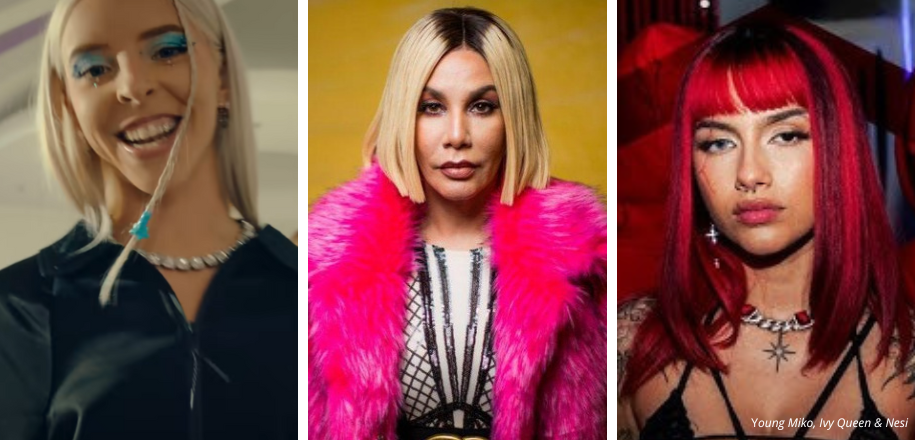Born in the South of Germany and based in Berlin, Babsi Tollwut started rapping in the early 2000’s. The queer feminist artist told us about her vision of hip hop, her antifascist and anti-patriarchal punk rap and her upcoming EP RAPISODEN.
Where does the name Babsi Tollwut come from?
The story behind my stage name is a little bit embarrassing but actually quite fun. I was very young, I think 18 or 19 and at a festival near Berlin. It was long before I claimed the stage but I was already rapping. I was a little bit crazy on this festival and started biting the biceps of very muscular boys. I think I felt provoked by their very dominant and explicit way of showing their masculinity by not wearing shirts and things like that. But I can’t remember that much…
«Tollwut» is the German word for «rabies», this disease that makes animals go crazy and bite people… One of my flatmates gave me fun nicknames back then and he kept calling me «Babsi Tollwut» and after the festival everyone started calling me that. It became my name on Facebook and I used it while I released my first songs.
How and when were you introduced to hip hop for the first time?
When I was 5 or 6 years old, Iistening to Tic Tac Toe», a German all female rap-crew, introduced me to hip hop. They were quite successful in the 90’s and made it into the German charts on TV and on radio stations and I loved them! I knew all their lyrics by heart and recorded their songs when they were played on the radio.
“In the beginning, I wasn’t able to control what I wrote.”
My sister and I also recorded tapes by pushing «play» and «record» at the same time, playing «Tic Tac Toe» on the CD player and rapping «with» them… I wish I still had these tapes! I think this was pretty much the beginning of everything for me….
How did you start rapping?
I started to write rap songs when I was 9 years old (maybe at an even earlier age, but the oldest songs I found were from 1999). I discovered writing as my way of surviving and dealing with shit in my life. In the beginning I wasn’t able to control what I wrote and when it came out, it was like vomiting. There was something going on inside of me and suddenly everything came out and it took me two minutes to finish the song with no need for any changes later on.
So I was rapping but only for myself because there was no space for a girl on the rap scene and it took me a long time to claim the stage. Especially because I grew up in a very conservative part of Germany, surrounded by very stiff gender roles. My first time on stage was in 2013 and since then I’ve been performing regularly.
“It’s my job to annoy the rap scene.”
In the beginning, I only rapped in the context of women and LGBTIQA* parties without any cis-men. For me, it was very important to perform in these spaces and become self-confident enough to confront myself with the reality and sexist shit in the «real” hip hop scene. Now it’s like my job or profession to annoy the rap scene with my queer-feminist politics!
Which artists did you listen to while growing up?
In regards to rap, it started with «Tic Tac Toe», and a little later «Freundeskreis» became influential to me and when I was a teenager I started listening to German «gangster rap» like, «Aggro Berlin» and «Kool Savas». I think I liked the way they provoked society and all the adults going mad because they were using all these dirty words, which shocked them. It took me years to realize that I was insulted and hurt by the sexist shit they said. When I was a teenager, I didn’t understand the relation between these abusive lyrics and myself.
“RAPISODEN is a very anti-fascist record.”
But I also listened to punk music a lot because where I grew up, the punk scene was the only alternative scene that existed. I also listened to my parents’ old vinyl records from a very early age on, like Patti Smith, Bob Dylan and Cat Stevens.
It was only when I moved to Berlin at the age of 18 that I was exposed for the first time to concerts of leftist female MCs and I was really impressed.
If someone doesn’t know your music and wants to discover it, which track would you advise them to listen to first and why?
I would definitely recommend them to start with Fischfänger. This is my most explicit radical queer-feminist message against the patriarchy and also the song that I’m most known for. I think it’s good to start with this track because the listeners will know who I am. If someone can’t deal with my queer-feminist position, they can just stop listening. But if they agree with that, they can enjoy all the other songs, which deal with a huge variety of topics.
Some are very emotional, thoughtful and even just nice or fun. In general, my songs are about the things that move me. It’s often about political issues, like anti-fascism, against right-wing structures or living in a capitalist world but also about very private issues like problems in relationships, being queer, mental health issues and many other things.
Your latest video Puls in Meinen Füssen is part of your upcoming EP. Can you tell us more about this project?
My new EP is called RAPISODEN. I wrote all the lyrics in 2020, which was a very crazy year for everyone, me included. I had to deal with a lot of personal shit and also all this creepy right-wing anti-corona shit that is currently happening in Germany. So it’s also a very anti-fascist record.
“There is still a lot of anger in my songs.”
It represents a very short period of just one year. But as the year consisted of two lockdowns and a lot of time to think about things and reflect myself, the album turned out to be very deep and introverted in some parts.
But there is still a lot of anger in my songs, especially against right-wing people and the patriarchal structures in society and in the hip hop game in particular. There will also be a feature song on my EP, which is very special to me, because I really like the featured artist, who hasn’t been revealed so far. We planned collaboration for a while and now it finally worked out. To sum it up, RAPISODEN is a truly dear to my heart, very boom-bap with sample-beats, deep, honest, angry and queer-feminist as fuck.
What is your relationship to Berlin and how is the rap scene like over there?
My mother is originally from Berlin and I spent a lot of time there when I was a child. Berlin contrasted with the very conservative south of Germany, where I grew up. I realized early that Berlin was different, and I didn’t stand out there. You can be freaky here without being regarded as a freak as much as you would be in the south. So I decided that I would move there and this is exactly what I did. It was kind of a relief.
“As a queer person, Berlin made it easier for me.”
Back in the south, I had already been part of ANTIFA groups since I was a teenager and we always had problems with the police and I was impressed how free I could feel now, after I had moved to Berlin, compared to that.
Of course, life in Berlin was not without problems, but not with that many as in the conservative south. As a bisexual or pansexual person (I don’t really know how I would label myself and mostly identify just as queer), Berlin made it easier for me living my life and the queer-community was a gift for my private life as well as for making music. Especially having the first performances without cis-guys was very important for me and very empowering.
Hip hop is often depicted as sexist/LGBTphobic and yet, many female/queer rappers use rap as a medium to express themselves. How do you explain this contradiction?
I don’t see this as a contradiction. (Re-)claiming something that someone is trying to exclude you from is a form of political activism and empowerment. Taking spaces, taking back the night, taking streets, walls and stages. Hip hop doesn’t belong to assholes. It belongs to everybody! I love the culture and also the music and if I don’t like what is there already, I have to create new shit, the way I want it to be. This is what I do and a lot of other great people do the same.
“I use hip hop to defend myself against patriarchy.”
It is a kind of a strategy to use their «language» to say all the things that need to be said. Using hip hop as a medium to defend myself against patriarchy and say the things in that kind of «language» they use against me.
Hip hop loves everybody, hip hop is queer and feminist and kind. All these horrible cis-guys claimed hip hop for the disgusting way they see the world. But this is not how the world is. So we all take it back and show all these different kinds who are part of hip hop too. We just need to be seen and listened to and I think we are heading in the right direction: queers and grrrls united!
Who are your female role models?
I don’t have a special one. I was always impressed by people who stood up for themselves and fight for their freedom and the freedom of others. I never had this feeling that I want to be «like» someone else. I was only inspired by people who stayed true and strong and stood by their values. Fighting against state powers, like Rosa Luxemburg, but also like «Tic Tac Toe» or my grandmother. All of these people influenced and inspired me and still do every single day.
How do you define your own feminism?
My feminism is queer and intersectional. It’s also anti-capitalist and anti-fascist. I think if you fight against one of the power structures on this planet, you also have to fight against all the others.
“My feminism is error-friendly.”
This includes reflecting one’s own privileges and how you can use them to make the world a better place.
My feminism is also error-friendly. Everybody makes mistakes and I think that’s okay and it’s a process to find out who you are, what you know and what you still have to learn.
My feminism is based on solidarity with all women and LGBTIQA* people out there and currently my biggest goal is to fight against the capitalist idea of competition between us.
How does the coronavirus pandemic impact on your activities?
It has completely changed everything. In March 2020, I was still the support act for Sookee on her tour and just one week after the last show, the first lockdown started in Germany. I released my first album at the end of 2019 and I had a tour planned for 2020. This was, of course, not possible. Most of the concerts were cancelled and I lost a lot of money because I had already bought the train tickets for a lot of tour dates.
Luckily, I could do five live performances through the summer. There were festivals and demonstrations where I had the opportunity to perform. Beside this, I had a few streaming concerts and online interviews with magazines and things like that.
At the end of the day, I had more time to write and produce my new EP, which I will release soon. So I made the best out of it. The big problem is money because I don’t earn enough money to pay the bills for the production of the EP but now I have started a crowdfunding campaign to help cover the expenses. This totally worked out and I am so happy and impressed about all the support and love I got from the community and my fans. <3
What do you think about Madame Rap? What should be changed or improved?
I love your website! I like the idea of getting to know international female and LBGTIQA* rappers. And I already discovered a lot of people and music that I never heard of before. And I am so fucking thankful that you feature me and I am very proud of that. Thank you! Keep up the good work!
Find Babsi Tollwut on her website, Facebook, Instagram, YouTube and Soundcloud.
© Alexander Galler

